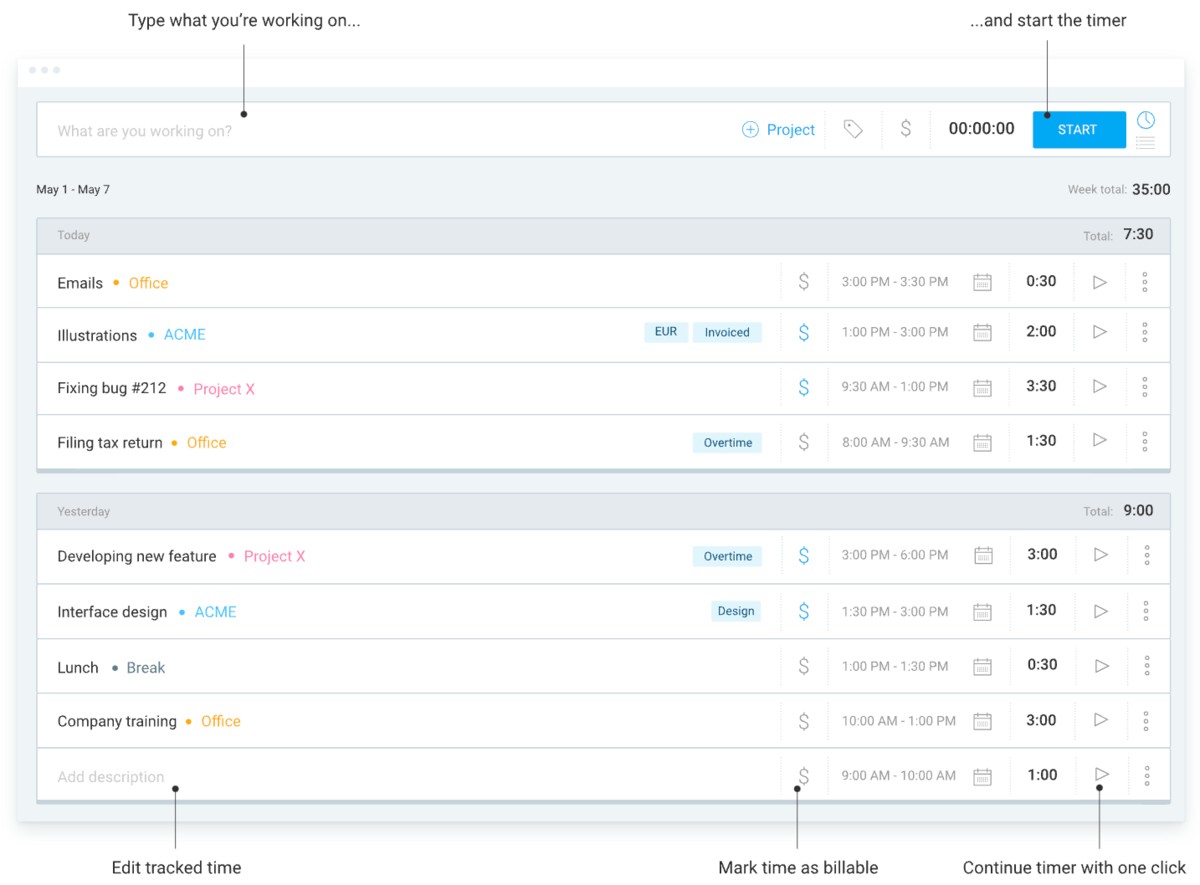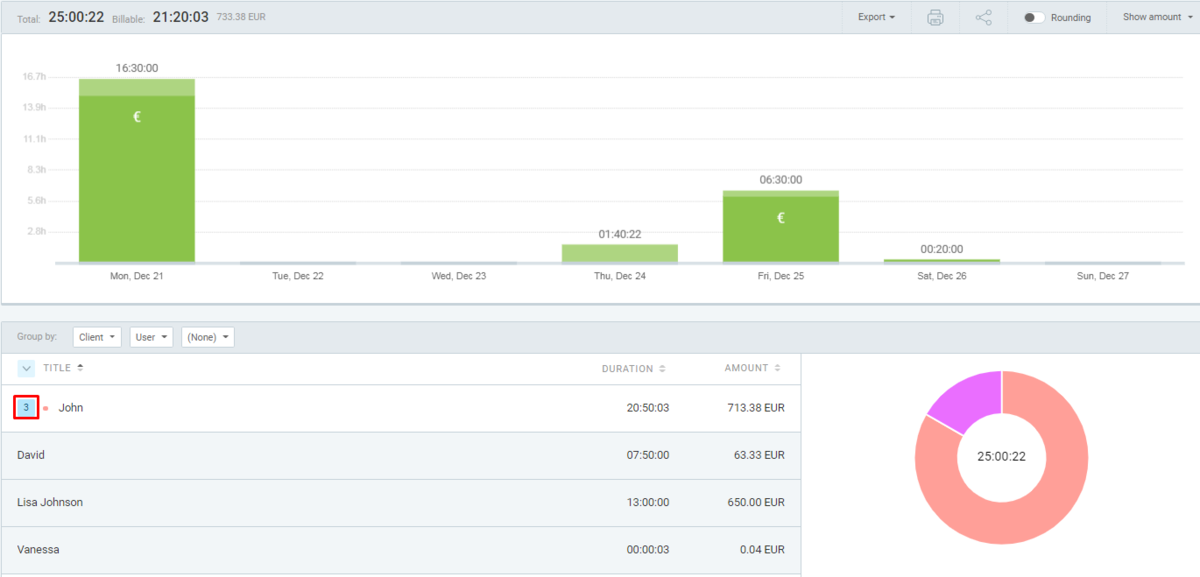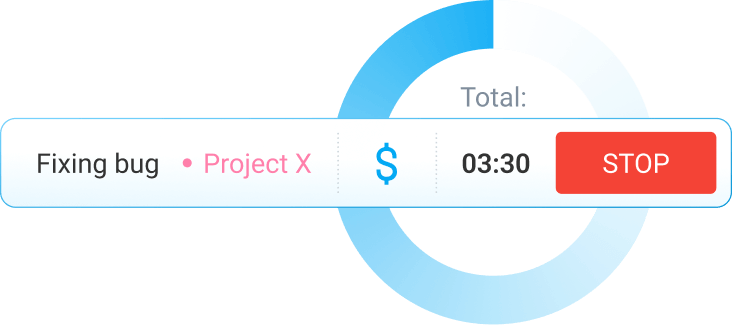How a VA Agency Grew From 1 to 18 Employees With Clockify
“I need to be able to see our progress at any time — and Clockify allows this.”
– Caroline Marshall

If you’re a business owner with too many tasks on your plate, consider outsourcing some of your daily assignments to virtual assistants (VAs).
After all, their job is to “give busy, passionate people their time back,” according to Caroline Marshall, a virtual assistant and our interviewee. She’s also the founder of Upsource, a company dedicated to providing virtual assistant services.
We invited Caroline for a chat about her experience and expertise in the VA industry. Besides that, we heard how Clockify elevates her team’s time management and overall growth.
Upsource’s story: How a performer achieved VA excellence
Before becoming a virtual assistant in 2016, Caroline had worked as an Executive Assistant/Events Professional. Meanwhile, she expressed her creative side through music performance.
So, we were eager to find out why Caroline switched careers:

“For a few years, I did performing on the side. A mix of wanting financial security/stability, a mortgage, and falling out of love with performing made me make the switch.”
Given her performing background, we wanted to pick Caroline’s brain on its link to her VA business, Upsource:

“There’s nothing scarier than putting your singing voice out there to be judged by others. Interviews, discovery calls, media — it’s all easier than that (although I do get nervous). Dancing, singing, performing — you get many setbacks and have to pick yourself up — just like owning a business.”
Finally, we asked Caroline what specific skills VAs should nurture for a prosperous career:

“A curiosity for tech, time management, and a thirst for learning are essential for VAs. This industry is ever-changing and we need to be on the top of our game to stay relevant.”
💡 Clockify Pro Tip
If you’re considering a VA career, browse our compact guide for beginner VAs:
How to Become a Virtual Assistant (+ Expert Tips)Upsource daily: A look at their work routine, services, and clientele
Next, we enquired about the daily routine at Caroline’s business. In response, our interlocutor said:

“There’s no such thing as an average day, depending on what you do as a VA — juggling diaries, drafting communications, project managing tasks. As a VA agency owner, I check in with my team daily, review our clients, and review Clockify for our billing progress each day/week.”
While on the topic of their daily operations, we also discussed Upsource’s customers. Caroline told us they work with startups, small- and medium-sized businesses — but also individuals who need help managing their lifestyle. Ultimately, she shared what qualifies clients for VA services:

“It’s no longer CEOs and C-Suite directors who need a PA — if you have a budget and willingness to invest some time in the relationship, then a VA is for you. And the irony is you need to invest time to work with virtual assistants to get your time back.”
Speaking of their clients, what kind of assistance do they usually look for? Caroline noted that requests often vary, including services like:
- Inbox/diary management,
- Task/project management,
- Tech and social media support,
- Management from an admin perspective and implementing new software/SOPs,
- Event/training management, and
- Lifestyle support.
✉️ If you’re a Clockify user (or also use Pumble and Plaky, within the CAKE.com Bundle) and you’d like to have your own customer story featured on our blogs, reach out to us at pr@cake.com!
Why the Upsource team picked Clockify
Now, how did Caroline’s team find out about our time tracker? In her words, Caroline looked up different types of software and tried them out before settling on Clockify for its:
- Ease of use,
- Clear reporting, and
- Budgeting options.
Additionally, she admitted that tracking time in Clockify keeps her from working ridiculous hours — and eventually burning out:

“Back in 2016–2019, I was working 12-16 hours per day (billable work) — I will never let that happen again. Through reviewing my tracked time, I can see what I can easily outsource myself and how many hours I need help. It’s fantastic!”
Our interlocutor also credited our time tracker for accelerating her company’s growth:

“We are a team of 18 now and Clockify has allowed us to grow from 1 to 18.”
💡 Clockify Pro Tip
To expand your business, you need to have a strong grip on your finances. Here’s how to keep your expenses in check:
How to Keep Track of Expenses AccuratelyClockify features that Upsource finds indispensable
Let’s look at Clockify features that help Caroline’s company speed up work processes and reach milestones.
Clockify feature #1: Timer
Our interlocutor sang praises of Clockify’s time tracking, highlighting its benefits for VAs. She especially applauded the practicality of tracking billable and non-billable time:

“As VAs we could be spending as little as 15 minutes on a client. This time adds up if we aren’t consistent with our time tracking. I also love to see billable vs non-billable work. I spend a lot of time on non-billable work — and it’s very important that I can track this.”

As an experienced VA, Caroline shared that time tracking can help you identify time wasters:

“For example, track the time you spent engaging with potential clients on social media — the results might be a bit scary for you! If you’re spending 4 hours a day scrolling on social media — it might be reality-check time for your productivity!”
💡 Clockify Pro Tip
If you’re unsure what tasks count as billable or non-billable hours, we suggest you read our guide below:
How to calculate billable hoursClockify feature #2: Reports
For Caroline, Clockify’s reports made it way easier to see and share real-time progress with clients:

“The reporting is excellent. I need to be able to see our progress at any time — and Clockify allows this. It’s also very easy to send reports over to clients on a weekly/monthly basis.”
As Caroline is already aware, our time tracker offers several types of reports tailored to different needs:
- Summary reports— quick overview of all time entries for each day, including billable/nonbillable amounts and time spent per project,
- Detailed reports — comprehensive list of time entries showing exactly how your team is spending their time, and
- Weekly reports — breakdown of activities and their hours by day and week.

💡 Clockify Pro Tip
If you’d like to learn how to use reports to review team time and export related data, get started with our guides:
Schedule reports Customize reports Export reports
How Clockify supports Upsource’s future plans
Virtual assistants welcome clients from different markets — which means multiple different tasks quickly pile up.
As a VA agency owner, Caroline recognized the need for tracking how her staff allocates time to daily assignments.
Our interlocutor continues to scale her enterprise aided by Clockify’s effective and affordable features:
- Tracking billable and non-billable hours to gauge profitability, and
- Checking reports to review project progress.
Our time tracker’s benefits extend beyond the VA industry. However, if you run into any issues while using it, simply drop a line to our friendly 24/7 customer support.
Watch your numbers soar, as your worries disappear — with Clockify.